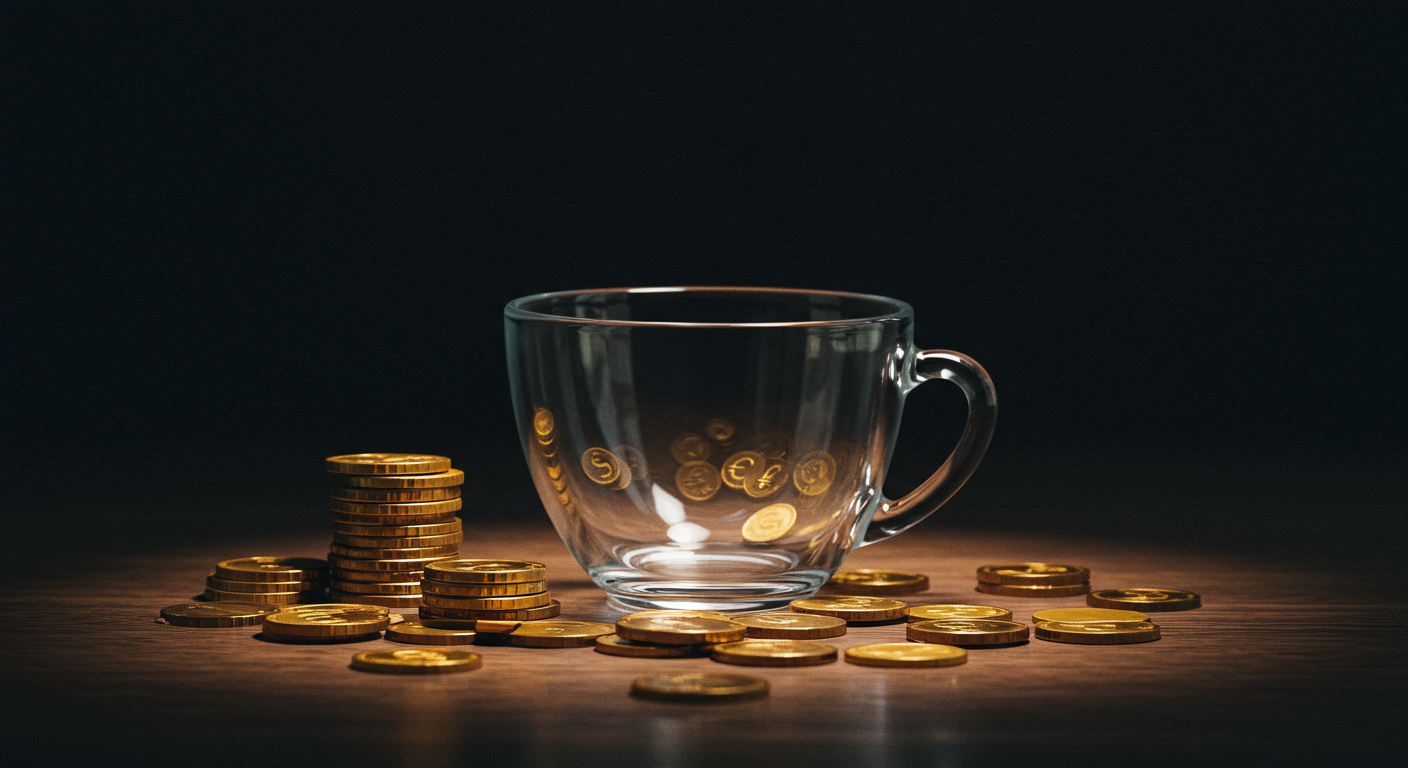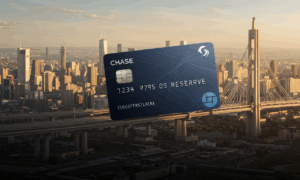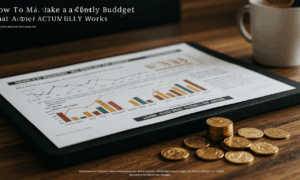Currency Wars: How Exchange Rates Affect Your Travel, Your Purchases, and Your Job
The term currency wars might sound like a distant headline, something that only concerns central bankers and high-level politicians. However, the reality is that fluctuations in exchange rates have a direct and tangible impact on your daily life. From the cost of your next vacation to the price of your smartphone and even the security of your job, the silent battle between global currencies shapes your personal finances in ways you might not expect. This article will demystify these complex concepts and provide you with the knowledge to navigate their effects.
Understanding how currency values shift is no longer just for economists. It is a crucial skill for anyone looking to protect their savings, make smarter purchasing decisions, and comprehend the global forces influencing their local economy. We will explore how these dynamics play out in three key areas of your life and offer practical strategies to manage the risks and opportunities they present.
What Are Currency Wars? A Simple Explanation
At its core, an exchange rate is simply the price of one countrys currency in terms of another. For example, how many US dollars it takes to buy one Euro. These rates are not fixed; they fluctuate constantly based on supply and demand, which are influenced by factors like interest rates, economic stability, and international trade.
A currency war, or competitive devaluation, occurs when countries intentionally manipulate their exchange rates to gain an economic edge. The primary tactic is to devalue, or weaken, their own currency. Why? A weaker currency makes a countrys exports cheaper and more attractive to foreign buyers. At the same time, it makes foreign products, or imports, more expensive for its own citizens. This strategy aims to boost domestic industries and reduce trade deficits, but it can trigger a domino effect as other countries retaliate by devaluing their own currencies, leading to global economic instability.

The Direct Impact on Your International Travels
Nowhere are the effects of exchange rates more immediately felt than when you travel abroad. The strength or weakness of your home currency directly determines your purchasing power in another country. Let us look at how this works:
- When your home currency is strong: This is great news for travelers. A strong currency means your money goes further abroad. That hotel room, dinner, or souvenir will cost you less in your own currency than it would have previously. It is the ideal time to plan an international trip.
- When your home currency is weak: This makes traveling more expensive. A weak currency means you need more of your money to buy the same amount of foreign currency. Suddenly, every purchase abroad feels pricier, and your travel budget can shrink quickly.
To mitigate these effects, you can take several proactive steps. Start monitoring the exchange rate well before your trip. If you notice a favorable trend, you might consider pre-paying for major expenses like flights and accommodations to lock in the better rate. Furthermore, be strategic about exchanging money. Avoid airport currency exchange kiosks, which often have high fees and poor rates. Instead, consider using a credit card with no foreign transaction fees or withdrawing cash from a local ATM upon arrival for a more competitive rate.
Your Shopping Cart and the Global Market
You do not need to leave the country to feel the impact of currency fluctuations. Look around your home: your television, your coffee, the clothes you wear, and even parts of the car you drive were likely imported. The prices of all these goods are heavily influenced by exchange rates.
When your national currency is strong, imported goods become cheaper. This is beneficial for consumers, as it can lower the cost of living and provide access to a wider variety of affordable products. However, when your currency weakens, the opposite happens. The cost to import those same goods rises, and companies often pass that extra cost on to you, the consumer. This can contribute to inflation, as you find yourself paying more for everyday items. Understanding this link can help you make more informed decisions about your major purchases and how you approach your personal savings strategy during different economic cycles.
The Hidden Connection to Your Job and the Economy
Perhaps the most profound, yet least visible, impact of currency wars is on the job market and the broader national economy. The value of a countrys currency is a critical factor for its industries. A weak currency, while making travel and imports expensive, can be a major boost for exporting companies. Their products become more competitively priced on the global market, leading to increased sales, higher profits, and potentially more job creation in those sectors.
Conversely, a very strong currency can harm those same industries. It makes exports more expensive and harder to sell, while cheap imports flood the domestic market, creating intense competition for local businesses. In some cases, this can lead to production cuts and even layoffs. Therefore, the ideal exchange rate is a delicate balance. Governments and central banks are constantly working to manage their currency’s value to support both domestic stability and international competitiveness, a task that directly influences your employment opportunities and the economic health of your nation.
How to Protect Your Finances from Volatility
While you cannot control global currency markets, you can take steps to shield your personal finances from their volatility. The key is strategic planning and diversification.
- Diversify Your Investments: Do not put all your financial eggs in one basket, or in this case, one currency. Consider diversifying your portfolio with international assets. Investing in global stocks or mutual funds means a portion of your wealth is held in other currencies. If your home currency weakens, the value of your foreign investments may rise, helping to offset potential losses. This is a core principle of modern investment.
- Stay Informed: Knowledge is your best defense. Pay attention to financial news and understand the general trends of major currencies. This awareness can help you make timely decisions, whether it is planning a trip, making a large purchase, or adjusting your investment strategy.
- Maintain an Emergency Fund: Economic uncertainty is a given. Having a robust emergency fund in your local currency provides a crucial safety net. This fund ensures you can cover your essential expenses regardless of inflationary pressures from a weak currency or job market instability.
For more complex situations, especially involving significant international assets, it may be wise to consult a financial advisor with demonstrable experience in global markets. They can offer personalized strategies to help you navigate currency risk.
Conclusion
Currency wars and exchange rates are not just abstract economic theories; they are powerful forces that ripple through our interconnected world, directly affecting your wallet. From making your dream vacation more or less affordable to influencing the price of your groceries and the stability of your industry, these fluctuations matter. By understanding the basics of how they work and taking proactive steps to diversify your assets and stay informed, you can better protect your financial well-being and turn potential challenges into opportunities.
Frequently Asked Questions
What is the difference between a strong and a weak currency?
A strong currency is one that has a high value compared to other currencies. This means it can buy more of a foreign currency. It is beneficial for travelers from that country and for consumers buying imported goods. A weak currency has a low value in comparison, meaning it buys less of a foreign currency. This is generally beneficial for a countrys exporters, as it makes their goods cheaper for foreign buyers.
How can I track exchange rates easily?
There are many free and reliable tools available to track exchange rates. Major financial news websites, dedicated currency conversion apps for your smartphone, and even a simple search on Google can provide you with up-to-the-minute rates between two currencies. For more serious tracking, many brokerage platforms offer advanced charting tools.
Does a country always want a strong currency?
Not necessarily. While a strong currency benefits consumers and travelers, it can hurt a countrys export-driven industries by making their products more expensive on the global market. Many governments and central banks aim for a stable currency that is not too strong and not too weak, trying to find a balance that supports both domestic consumption and international trade.



